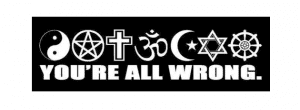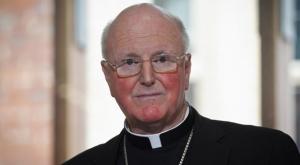Once again I found posted on Facebook the accusation that progressive Christians who “preach tolerance” were actually intolerant. Specifically they were intolerant of the those who don’t believe in same-sex marriage or oppose abortion rights.
And more specifically they are intolerant of Kim Davis’ decision to not issue marriage licenses to gay couples out of religion conviction. After all, shouldn’t we be tolerant of those who have different beliefs?
This argument is based on a serious misunderstanding about tolerance. Tolerance can exist only in the realm of personal expression and enacting of beliefs. In the realm of social engagement with others (whether private or public) tolerance is irrelevant. There relevant categories for analysis are justice and injustice.
To have any useful discussion of the most pressing issues of our contemporary society we must clearly demarcate these different realms, even if we know that they sometimes overlap. I don’t believe anyone questions the right of Ms Davis to both possess and express her beliefs about the origins, nature, and limits of marriage. She can even enact those beliefs in public by attending or refusing to attend weddings, and by getting married herself.
However, when she enacts her beliefs in a way that affects other people, notably gay couples seeking a marriage license, the the concept of tolerance is irrelevant. In that situation the only question is what is just. Justice for them, and justice for her.
And justice is, in turn, determined not by my opinions or your opinions or even quite frankly God’s opinions (assuming we know them). What is just is determined by the law and the social institutions that create and enforce it. Those institutions determined that her actions in refusing to sign marriage licenses were unjust. And thus they were unjust.
I realize that this definition of justice seems rather harshly a-theistic. But given that we live in a time where there is no consensus regarding God’s will it is pointless in a public forum to make assertions about God’s justice except for the purpose of gathering a consensus that will result in a change in law. Which will set a new (and enforceable) standard of justice. Preachers may preach, and believers may march, but for all practical purposes the courts will decide what is just.
I leave to the readers own convictions whether God will have a say in the long run.
(I note in passing that Ms Davis may have a claim under the Kentucky RFRA, and should she succeed on that basis in arguing that her religious liberty is violated by having to sign the marriage licenses then we will discover that she was also treated unjustly. This won’t be surprising. Often all parties in a dispute are treated unjustly in the end. That is the way the world works – injustice is sometimes all there is: a fact worthy of theological reflection.)
If we are to make any progress in our discussions of gay marriage and many other things we need to get rid of the language of tolerance, which isn’t appropriate to the kinds of social interactions we are discussing. The issue is justice. And there can be no tolerance for injustice, however you conceive of justice.











